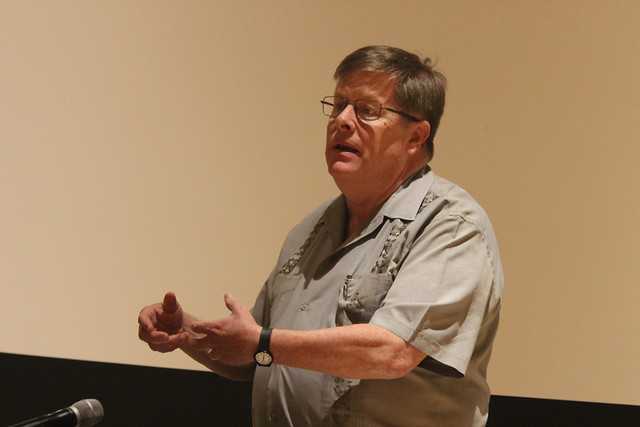July 19, 2016 - 4:00 PM
 In the Cuban village of Melaza, named after the once flourishing sugarcane fields, time stands still. Even when all kinds of things happen, nothing ever changes. The State pretends to take care of everything, but it shuts the rum factory and makes swimming lessons impossible. There’s no use complaining, think the inhabitants, that’s just how it is. New talent Carlos Lechuga tells his critical story with humour and sparse dialogue, taking us on a journey to the beauties of rural Cuba. Far from the hotels and from Havana, but with a reality familiar to everyone who has ever been to Cuba – or faced a shortage of cash.
In the Cuban village of Melaza, named after the once flourishing sugarcane fields, time stands still. Even when all kinds of things happen, nothing ever changes. The State pretends to take care of everything, but it shuts the rum factory and makes swimming lessons impossible. There’s no use complaining, think the inhabitants, that’s just how it is. New talent Carlos Lechuga tells his critical story with humour and sparse dialogue, taking us on a journey to the beauties of rural Cuba. Far from the hotels and from Havana, but with a reality familiar to everyone who has ever been to Cuba – or faced a shortage of cash.
“With the closure of the sugar mill, the little town of Molasses is devastated, lifeless. Aldo and Monica are a young married couple who want to find a way to survive. By supporting each other, they try to save their world without losing their faith.” (IMDb, written by Carlos Lechuga)
Moderator: Jerry Carlson, The City College and the Graduate Center, CUNY
 Jerry Carlson (Ph.D., University of Chicago) is Director of the Cinema Studies Program in the Department of Media & Communication Arts at The City College, CUNY. He is a specialist in narrative theory, global independent film, and the cinemas of the Americas. He is a member of the doctoral faculties of French, Film Studies and Comparative Literature at the Graduate Center, CUNY and a Senior Fellow at the Bildner Center for Western Hemispheric Studies. Carlson has lectured at Stanford, Columbia, Escuela Internacional de Cine y TV (Cuba), the University of Paris, and the University of São Paulo, among others. His current research is focused on how slavery and its legacy in the New World have been represented in film, literature, and music.
Jerry Carlson (Ph.D., University of Chicago) is Director of the Cinema Studies Program in the Department of Media & Communication Arts at The City College, CUNY. He is a specialist in narrative theory, global independent film, and the cinemas of the Americas. He is a member of the doctoral faculties of French, Film Studies and Comparative Literature at the Graduate Center, CUNY and a Senior Fellow at the Bildner Center for Western Hemispheric Studies. Carlson has lectured at Stanford, Columbia, Escuela Internacional de Cine y TV (Cuba), the University of Paris, and the University of São Paulo, among others. His current research is focused on how slavery and its legacy in the New World have been represented in film, literature, and music.
Carlson is an active producer, director, and writer with multiple Emmy Awards. As a Senior Producer for City University Television (CUNY-TV), he created and produces the series CITY CINEMATHEQUE about film history, CANAPE about French-American cultural relations, and NUEVA YORK (in Spanish) about the Latino cultures of New York City. In 1998 he was inducted by France as a Chevalier de l’Ordre des Palmes.












